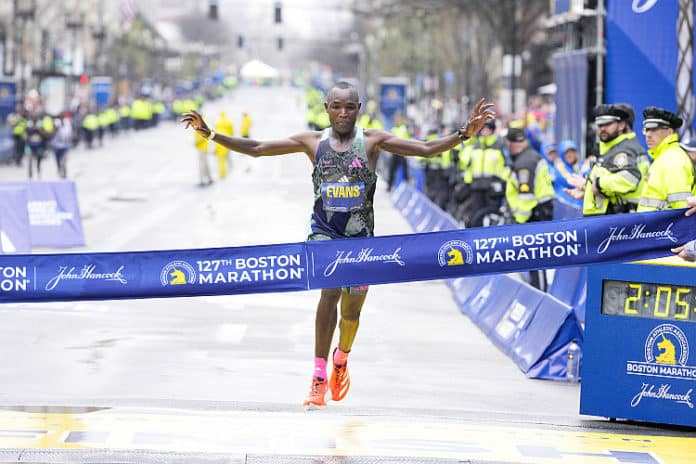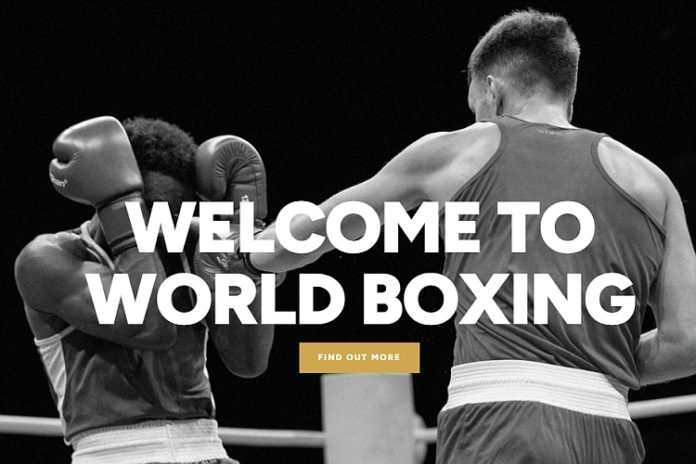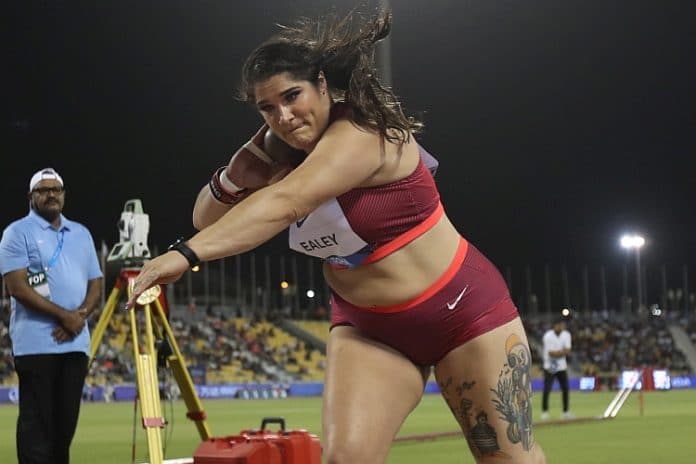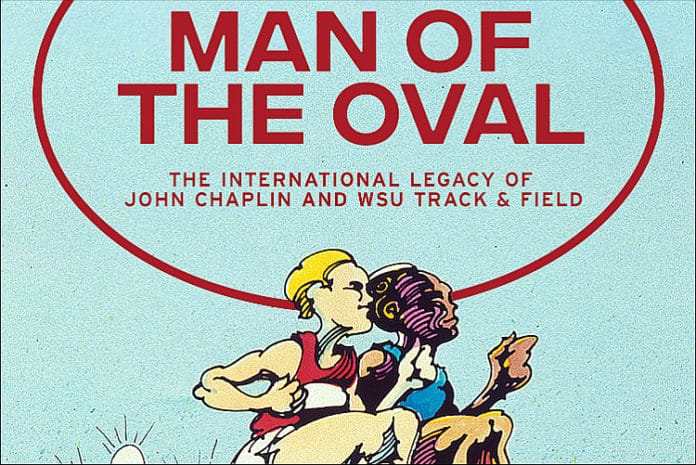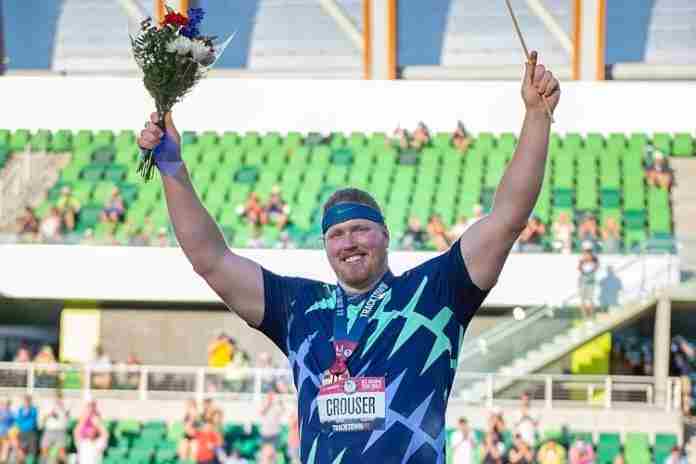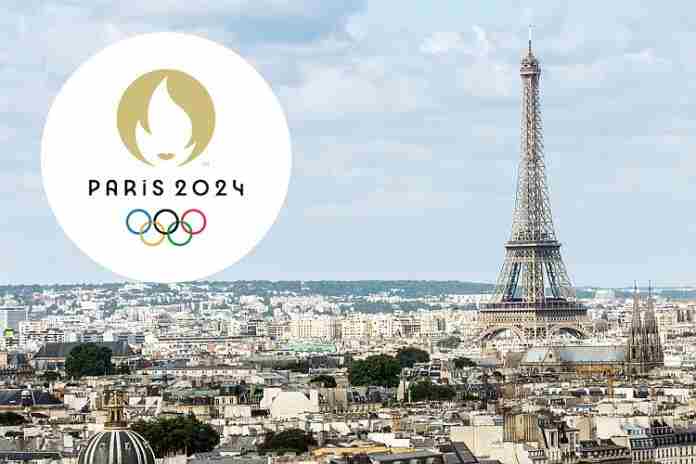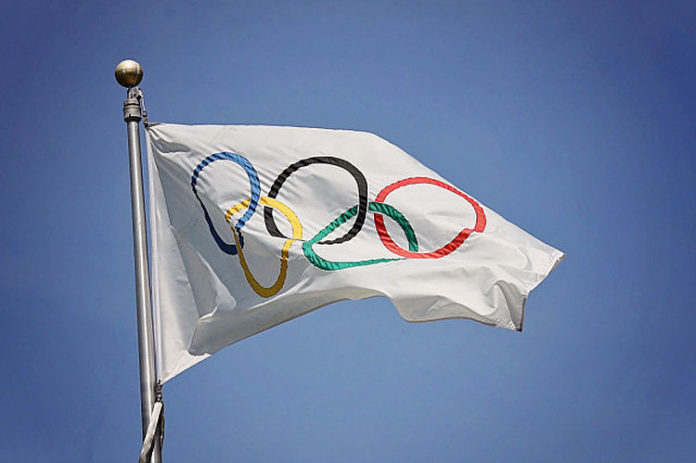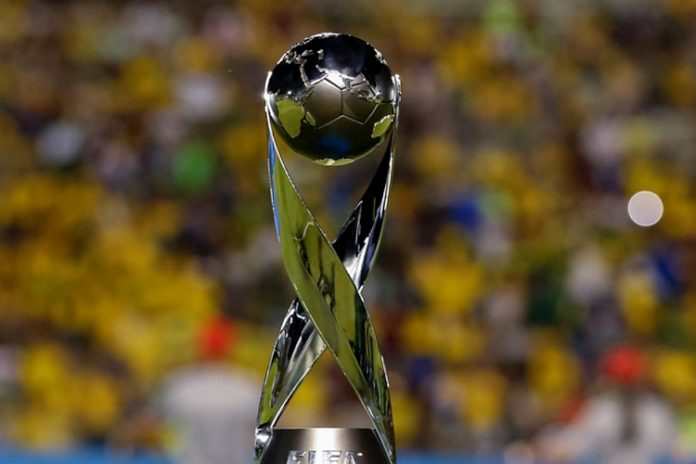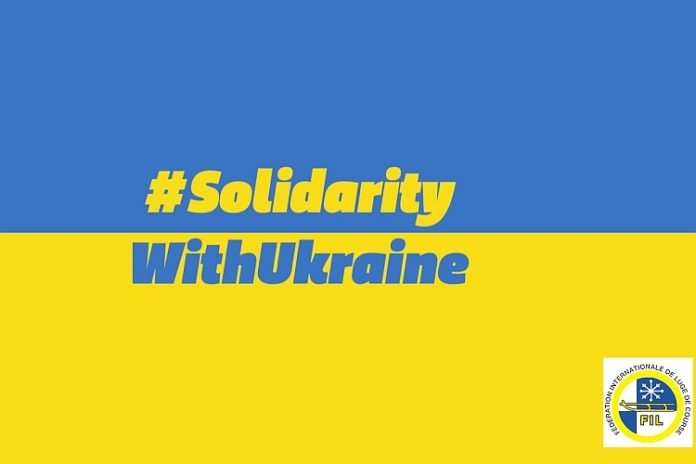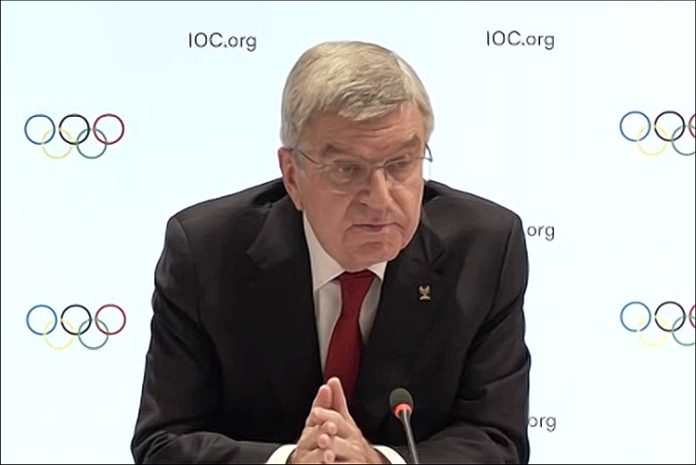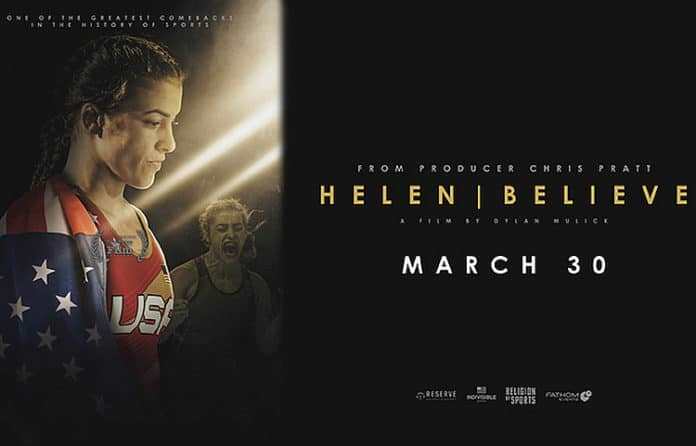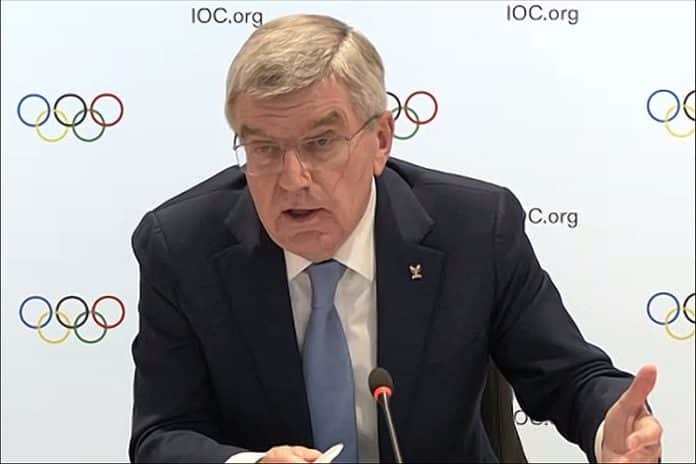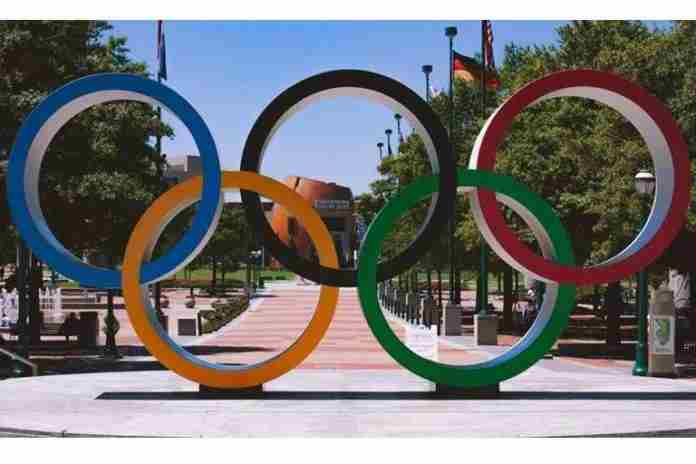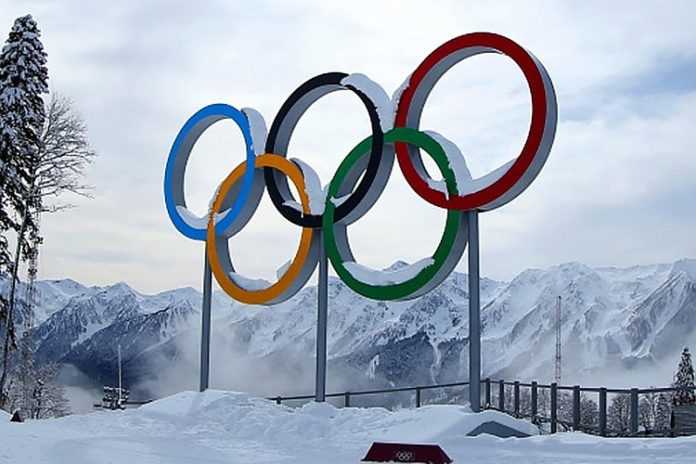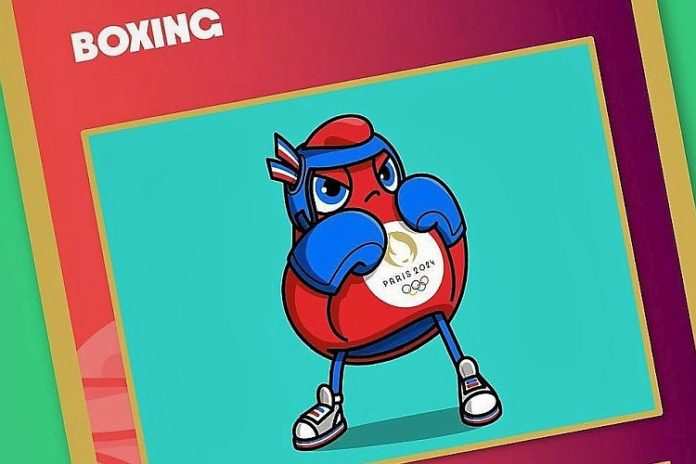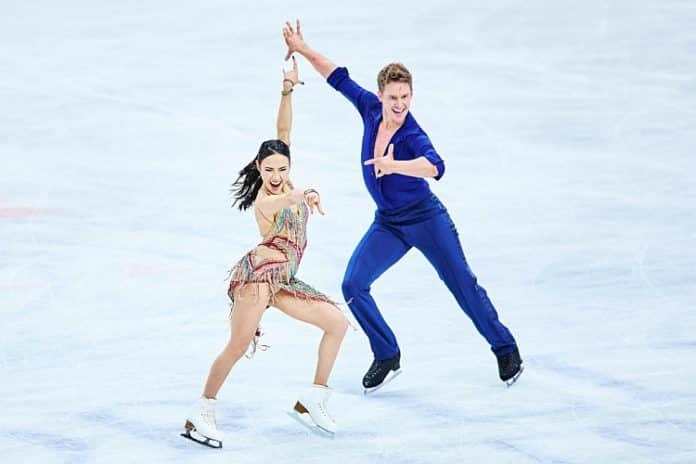★ The Sports Examiner: Chronicling the key competitive, economic and political forces shaping elite sport and the Olympic Movement.★
★ To get The Sports Examiner by e-mail: sign up here! ★
≡ THE 5-RING CIRCUS ≡
1. Oregon22 Worlds created $153.4 million economic impact
2. Australia wants to tone down Paris ‘24 athlete partying!
3. Kipchoge headlines Monday’s Boston Marathon
4. How shot stars Crouser and Ealey make their annual schedules
5. Irvine will build new aquatics center, but not in time for LA28
A post-event report on the 2022 World Athletics Championships in Eugene, Oregon showed a $96.8 million direct impact and $153.4 total economic impact, but the attendees were overwhelmingly American and mostly from Oregon. The event cost $75 million to produce and generated $89.3 million in media exposure. The Australian Olympic Committee will require its athletes to leave the Paris 2024 Olympic Village two days after their competition ends in order to keep things quiet for the remaining athletes, an unpopular stance with many swimmers who spend the second week of the Games having a good time! Kenyan Eliud Kipchoge, the greatest marathoner in history, runs at his first Boston Marathon on Monday, starting at 9:37 a.m. Eastern televised live on ESPN. Putting together a seasonal schedule isn’t easy in track & field; U.S. shot put stars Ryan Crouser and Chase Ealey – the 2022 World Champions – explained their approaches prior to their appearance in two competitions at the Drake Relays. The City of Irvine, California will build its promised aquatics center, to be used in part by USA Water Polo, but not until after the 2028 Olympic Games has come and gone.
● World Championship: Ice Hockey (Knight’s hat trick keys U.S. win at women’s Worlds) ●
● Panorama: Los Angeles 1984 (Photographer Paul Slaughter passes) = Archery (Mirich and Kaufhold win Arizona Cup) = Athletics (5: three world leads at Mt. SAC Relays; seven at Tom Jones Memorial; Abdi wins Rotterdam Marathon; McPherson gets drug suspension; Crumpacker passes at 67) = Curling (Koe and Wrana take Players Championship) = Cycling (Pogacar, Vollering win Amstel Gold Races) = Diving (China sweeps World Cup) = Figure Skating (U.S. wins ISU Team Trophy) = Football (men’s CONCACAF Gold Cup draw) = Gymnastics (Rafaelli sweeps Rhythmic World Cup) = Modern Pentathlon (Shaban leads Egypt 1-3 in men’s World Cup) = Sailing (World Sailing to study Russia readmission) = Ski Mountaineering (World Cup season finishes in Norway) = Swimming (Smith and Marchand win four each at Tyr Pro Swim) = Table Tennis (China sweeps WTT Champions) = Water Polo (U.S., Dutch win women’s World Cup qualifier) = Weightlifting (Azerbaijan flag burned at Euro Champs ceremony) ●
1.
Oregon22 Worlds created $153.4 million economic impact
A post-event analysis of the Oregon22 World Athletics Championships held at the University of Oregon in Eugene showed a total economic impact of $153.4 million and a total impact – including media exposure – of $237.4 million.
The study was received in January, prepared by Nielsen Sports for Travel Oregon, but had not been publicly released. It showed five drivers of direct spending impact on the Eugene-Springfield community:
● $45.0 million: Accommodations
● $29.8 million: Net organizing committee spend
● $10.0 million: Food & Beverage
● $7.4 million: Retail and Leisure spending
● $4.3 million: Local transportation
That’s $96.8 million, and with a multiplier of 1.59 for the counties impacted for induced economic impact, for an added $56.9 million, and a total of $153.4 million.
The report stated that the Oregon22 organizing committee budget was for $75.0 million on the event; the largest budgeted expenses were for:
● $14.0 million: Athlete experience
● $14.0 million: Broadcasting
● $9.9 million: Administration and staff
● $7.7 million: Event management
● $4.9 million: Event services
● $7.0 million: Contingency
Of the $75.0 million total, an estimated $47.6 million (73%) was spent in the local, Oregon economy. Nielsen removed $17.8 million in ticket sales, leaving a net local organizing spend of $29.8 million. Please remember that the State of Oregon subsidized or obtained $40 million in funds for the event.
Worldwide media exposure, a major reason for Oregon’s spend, came in with a total of $89.3 million in value:
● $59.3 million: television exposure
● $19.3 million: online exposure
● $7.2 million: social media exposure
● $3.5 million: print media exposure
Nielsen calculated that the state of Oregon received $19.3 million worth of direct exposure from its many commercials on broadcasts in various countries.
The report noted athlete and team officials approval of the event at 70%, lower than the 78% for the World Indoor Championships in Belgrade (SRB) earlier in 2022. Only 30% were able to visit local tourist attractions during the meet; they were busy at the track.
There were 150,000 ticketed spectators, of which 84% came from the U.S.; 49% of all spectators were from Oregon and 17% from the rest of the U.S. Of the 16% from outside the U.S., the majority were from Canada, but there were visitors from 37 nations.
The event had 1,585 volunteers, who provided an estimated 152,160 hours of services, worth about $2.1 million.
There’s a lot more to unpack from the report; stay tuned for more.
2.
Australia wants to tone down Paris ‘24 athlete partying!
“The learnings from Tokyo were absolutely positive that for the athletes who are competing in the second week, reducing the load on the village by athletes who have finished was positive for both their preparation and their health.
“We want all of the athletes to be able to perform at their best, whether they have a medal chance or not, so it doesn’t matter what sport you’re in. … This is about performance. It’s not for the wowsers, we’re actually doing it for the athletes who are still competing.”
That’s Australian Olympic Committee chief executive Matt Carroll, explaining new regulations for the Paris 2024 Games that Australian athletes must leave the Olympic Village after their events conclude, essentially the same rules in place due to Covid-19 restrictions in place in Japan for the Tokyo 2020 Olympic Games.
There was plenty of criticism, for example from swimmer James Magnussen, the 2011 and 2013 World 100 m Freestyle Champion and the London 2012 100 m Free silver medalist:
“The moment we’re finished, rather than letting our hair down and relaxing and celebrating and feeling like we’re part of the greater Australian Olympic team, you get kicked out of the village and on your bike.
“What they’re really doing is making the Olympics feel like just another competition rather than the special once-in-a-lifetime experience that generations of Australian athletes have had before.
“That’s missing out on a big part of the mystique of the Olympics and being able to support your teammates and meet athletes from other countries.”
Ken Wallace, a three-time Olympic medalist in canoeing, is the deputy chair of the AOC Athletes’ Commission and said that “the athlete voice was heard,” but was in favor:
“I agree that being in the Olympic Village is a part of the whole Olympic Games experience but I don’t agree that it should outweigh performance. We all love a good larrikin, but we also want to be a respectful team.”
One group that won’t complain will be the track & field athletes, who will be competing in the final week of the Paris Games and won’t have to deal with the sounds of the swimmers.
3.
Kipchoge headlines Monday’s Boston Marathon
The greatest marathoner in history, Kenyan Eliud Kipchoge will compete in his first Boston Marathon on Monday, which also marks the 10-year anniversary of the terrorist bombing which caused three deaths and 281 injuries, which included 14 amputations.
Memorial events were held on Saturday. Monday’s race, the 127th Boston Marathon, features outstanding elite fields, including a dozen men with lifetime bests under 2:06:
● 2:01:09 (2022), Kipchoge ~ 2016 and 2020 Olympic gold
● 2:03:00 (2020), Evans Chebet (KEN) ~ Boston winner 2022
● 2:03:00 (2022), Gabriel Geay (TAN)
● 2:03:40 (2019), Herpasa Negasa (ETH)
● 2:04:24 (2022), Benson Kipruto (KEN) ~ Boston winner 2021
● 2:04:45 (2013), Lelisa Desisa (ETH) ~ Boston winner 2013-15
● 2:04:49 (2018), Shura Tola Kitata (ETH)
● 2:05:01 (2022), John Korir (KEN)
● 2:05:13 (2017), Norbert Kigen (KEN)
● 2:05:34 (2022), Ghirmay Ghebreslassie (ETH) ~ 2015 World Champion
● 2:05:45 (2022), Andualem Belay (ETH)
● 2:05:49 (2015), Mark Korir (KEN)
The women’s field includes nine with bests under 2:20:
● 2:14:58 (2022), Amane Beriso (ETH)
● 2:17:29 (2022), Sheila Chepkirui Kiprotich (KEN)
● 2:17:43 (2021), Joyciline Jepkosgei (KEN)
● 2:17:45 (2020), Lonah Chemtai Salpeter (ISR)
● 2:17:57 (2021), Angela Tanui (KEN)
● 2:18:11 (2022), Gotytom Gebreselassie (ETH) ~ 2022 World Champion
● 2:18:11 (2022), Fancy Chemutai (KEN)
● 2:19:10 (2022), Hiwot Gebrekidan Gebremaryam (ETH)
● 2:19:50 (2012), Edna Kiplagat (KEN) ~ Boston winner 2021
Kipchoge is continuing his tour of the six World Marathon Majors, having run Berlin and London five times each, Chicago once (2014) and Tokyo once (2022). After Boston, he still has New York to go.
He’s run 17 career marathons, winning 15, with one second and one eighth; he’s won four in a row, and owns two Olympic golds, but has never contested the World Championships.
The race record is the famed 2:03:02 “wind-aided” race from 2011, when Kenyans Geoffrey Mutai and Moses Mosop (2:03:06) went 1-2; the next best time from any other race is 2:05:52 by Robert Kiprono Cheruiyot (KEN) from 2010. Kipchoge’s top-10 marathon times – on flat courses, to be sure – average 2:03:08!
The race will be shown live in the U.S. on ESPN, with the men’s field designated to start at 9:37 a.m. Eastern time and the women at 9:47.
4.
How shot stars Crouser and Ealey make their annual schedules
“Track & field, being a relatively fragmented sport, we don’t have a league, so to say, like the NBA or NFL that sets our schedule, so if I do 10 meets throughout the year, that’s 10 essentially independent contract negotiations. And 10 independent decisions on figuring out whether I do those meets.”
That’s Olympic and World Champion shot putter Ryan Crouser of the U.S., explaining in an online interview at the end of March how he determines which meets to compete in. It’s pretty complex:
“[I]t comes down to a number of factors. The most important, for me, even above money, is the scheduling in terms of training. So pretty much, the way I approach it, I look at the major championship for the year, because that’s the thing that matters the most to me in terms of performing at my best at World Championships.
“And so, I backtrack from there and get an idea of which meet will have the least impact on (a) my base training, of laying that foundation in the weight room, really taking a lot of throws volume, because that all knocks the performances down. So I need to get in my base training and my volume and (b), what will impact my taper.
“So I need about 3-4 quality weeks to taper down, to start doing more dynamic movements in the weight room, really get in focus, adding a lot of double throwing sessions, and competing during that time really throws a wrench into the taper. And so, number one thing for me is performing really well at the major championship and limiting hindrances to that preparation.”
What about money?
“Money is a part of it for sure, but a lot of the time the highest-paying meets are the ones that know they are at an unfortunate time and so there’s always a temptation to kind of chase the money, and that is one thing that I’ve really tried to limit and I think that my performances at majors has really reflected that.
“So at the expense of not earning quite as much, I feel like I’ve performed well in the majors. And, yeah, traveling is also a big part of it. It’s unrealistic to do a high-paying meet in Tokyo and expect to compete in Europe the following week. And so if I can string together a number of meets in a European trip, that’s what I am trying to do right now. But once again, they are independent negotiations, so you like have three meets planned and – shoot, this just happened earlier in the week – I’m not going to name the meets, but had a three-meet tour planned out and one meet didn’t come through like we thought and we have to juggle and re-arrange, and see if that trip is even worth it now that instead of doing three, is it worth it to go over for two because, still, going overseas, you miss a couple days of training, you compete for two meets, it usually takes about a week, but that’s 10 days of training that, if I had just stayed home, that’s a lot of swing in terms of what I am giving up.
“So, there are really a lot of factors. The biggest thing is planning and sticking to that plan, but also remaining flexible in terms of working around the meets. I could also do a one-hour TED Talk, so to say, on how to put together a professional schedule because I feel like that’s a really, really important part of being a professional and performing well, but there’s a lot of factors that come into it at the end of the day.
“My agent gets a little bit frustrated with me at times because he comes through with some good deals that I just can’t sometimes work into my training schedule and my proper preparation for World Champs or Olympics.”
Women’s World Champion Chase Ealey was asked the same question, in advance of both she and Crouser competing in an indoor and an outdoor competition at the forthcoming Drake Relays from 26-29 April:
“That’s really funny that you asked this, I was talking to my coach and my agent today, because official schedules [are now] coming out, of what the meets are and what events are in each meet. And so I really hammered down on what I think my schedule is going to be. I think I’m scheduled right now for 13 meets, I think, including championships and USAs.
“It’s a bit more difficult, kind of gauging where I want to go, now that I am over here [she lives now in England for training purposes], because there are meets I want to do at home, but like you said, it’s a lot of travel, so I have to be careful. So I think my agent and my coach really helped me with that a lot. We try and do things and grab things that might keep me in the same place for a while, so like when I’m going to the U.S., for instance, I kind of want to see if there’s more meets than one within like a week’s span.
“And I try and do that, and it’s kind of about like balancing my energies. So, obviously, there’s going to be a tier system. So Diamond Leagues are going to be at the top of my attention, and then Gold-level meets, and Silver and so on. I think I’d try and go first to where I’m absolutely going to go, which is usually going to be Diamond Leagues, then I try and base it off of the levels, and the timing.”
Obviously, coming back to the U.S. was an attraction for her:
“Drake was one of the meets where there’s multiple meets going on, and one of the big, deciding factors is that my family is from Illinois as well and so they are about five hours away from Des Moines, and so when I talked to my agent – with me living over here – I don’t get to see my people a lot.
“So it was pretty easy to kind of lean more towards going to Drake to start the season so I can see my family. So there’s a lot of different factors that play into it as well now, so most of my U.S. campaign, you’re going to see me do multiple meets, but also kind of, stick around so I can see my family.
“So if I’m going to have to travel that far, when they said there was two meets, I kind of like, that’s even better, because if I can get like all that under my belt, because I like to throw and compete and really feel myself out throughout the season. So, to be able to get two and be in the U.S. for longer, that’s always going to be a plus for me.”
Like most things, it isn’t easy. Crouser was remarkably candid about the timing of training vs. traveling vs. competing, but when you’re obsessed with the major championship of each year, that’s what it takes.
5.
Irvine will build new aquatics center, but not in time for LA28
A new training facility for USA Water Polo has been on the drawing board for years for the Great Park in Irvine, California as part of a larger aquatics center, one of a host of projects that have been delayed for some years.
In March, it appeared that the aquatics center would be built first, but the Irvine City Council, in a 3-2 re-vote, decided to prioritize the “Heart of the Park” programs, which include a “Great Meadow,” an amphitheater, lakes, a botanical garden and other items. A special tax fund was set up for Great Park projects and while the aquatics center will be built, it is now expected to be completed between 2029-32.
The aquatics facility is priced at $80 million, with USA Water Polo contributing $12 million to cover the portion of the project that will used for its training programs.
≡ WORLD CHAMPIONSHIP ≡
● Ice Hockey ● The 2023 IIHF Women’s World Championship ended in Brampton (CAN) the same way as 20 of the 21 prior tournaments: with a Canada vs. U.S. gold-medal final.
Canada came in having won 12 of the 20 and was the two-time defending champions after the American women had reeled off five straight between 2013-19. In the semis, the U.S. clubbed the Czech Republic, 9-1, with Amanda Kessel getting two goals, Hilary Knight scoring twice within 1:35 of each other in the second period and Tessa Janecke scoring twice just 4:21 apart in the third.
Canada out-shot Switzerland by 14-2 in the first period of the second semi, but the game remained scoreless. Sarah Fillier finally put Canada up, 1-0, at 11:06 of the second, and then got a second goal almost six minutes later (37:06) for a 2-0 lead at the second intermission. After a Jamie Lee Rattray goal early in the third period, Fillier got a hat trick with 4:56 to play and a 4-0 lead and it ended at 5-1. The Canadians finished with 59 shots to nine for the Swiss.
Sunday’s championship match was hardly a repeat of the taut, endless shoot-out in the group stage after a 3-3 tie. Canada had a 3-2 lead after two periods, with Brianne Jenner scoring twice in the second period, at 5:03 and 9:39, around a Knight goal for the U.S. The Canadians had a 19-14 edge on shots through two periods.
But the U.S. dominated the third period, with Caroline Harvey tying the game at the 5:40 mark, and Canadian penalties created a 5-on-3 situation with 3:52 remaining in the game. Knight got her second goal at 3:10 to play and then, with a 5-on-4 edge, she scored her third goal of the game with 2:43 left.
That put the U.S. up by 5-3 and Canada removed star keeper Ann-Renee Desbiens for an extra attacker and the Americans took advantage with an empty-net goal by Cayla Barnes with 1:58 left for the 6-3 final. Both teams had eight shots in the period, but the U.S. scored four goals to none for the defending World Champions.
For Knight, the three goals were the 99th, 100th and 101st World Championship points in her career, and as the U.S. won its 10th Worlds gold; she has medals from nine of them!
In the third-place match, the Czech Republic had a 2-1 edge at the end of the first period, but the Swiss tied it in the second period, 2-2, before Denisa Krizova got her second goal of the game at 17:16 of the second period for the 3-2 win and the bronze medal. It’s the second straight year for a bronze for the Czechs.
≡ PANORAMA ≡
● Olympic Games 1984: Los Angeles ● Sad news that Paul Slaughter, who served as the staff photographer of the Los Angeles Olympic Organizing Committee for the 1984 Games, has passed away at his home in New Mexico.
He passed away on 6 April after a long illness, according to a message from his wife, Inee, from Santa Fe. Slaughter joined the LAOOC in 1983 and was an accomplished photographer, known especially in the jazz world. His work was heavily included in the LAOOC’s Official Report of the Games of the XXIIIrd Olympiad, published in 1985.
● Archery ● A huge field of more than 800 archers gathered for the AAE Arizona Cup, which also doubles as the first stage (of three) in the USA Archery selection process for the 2023 World Archery Championships.
The Worlds selection process concerned only the 72-arrow qualification round at 70 m, led by triple Olympic medalist and 2019 World Champion Brady Ellison at 690 points, followed by Jackson Mirich (668) and Tokyo Olympian Jack Williams (660).
Fellow Tokyo Olympian Casey Kaufhold, the 2021 Worlds silver medalist, led the women’s round at 657 points, with Jennifer Mucino-Fernandez (639) and Catalina GNoriega (639).
In the elimination rounds on Sunday, London 2012 Olympian Jacob Wukie of the U.S., now 36, upset Ellison in the semis, 6-5, but was defeated in the final by rising star Mirich, 22, 6-2. Ellison took the bronze, 6-0, over Gabe Anderson.
Kaufhold stormed through the elimination rounds, winning 6-0, 6-0, 6-0, 7-1, 6-0 in her semi and then 7-3 in the final over Gabrielle Sasai. Mucino-Fernandez won the bronze, 7-3, over Eunice Choi.
● Athletics ● At the Mt. SAC Relays in Walnut, California, Tokyo Olympic runner-up Rai Benjamin of the U.S. grabbed the world lead in the 400 m hurdles, winning in 47.74, the fifth straight year in which he has run under 48 seconds.
Italy’s Emmanuel Ihemeje won the triple jump at 17.47 mw (57-3 3/4w: +2.8 m/s), but also grabbed the world lead at 17.29 m (56-8 3/4 legal).
American Will Williams won the men’s long jump at 8.23 m (27-0), moving to no. 2 on the world outdoor list for 2023, with Kemonie Briggs (USA) just behind at 8.22 m (26-11 3/4). Lithuania’s Mykolas Alekna, the Worlds silver winner in 2022 and a soph at Cal, won the men’s discus at 68.35 m (224-3), second only to his world leader of 68.39 m (224-4) earlier this year.
American Vashti Cunningham, the 2016 World Indoor Champion, won the women’s high jump at 1.98 m (6-6) to equal the world outdoor lead, and Canada’s Camryn Rogers, the 2022 Worlds silver winner, improved her world-leading mark to 77.84 m (255-4).
In a widely-anticipated men’s 100 m, Cravont Charleston of the U.S. won in a wind-aided 9.87 m (+3.0 m/s), over Kyree King (9.98) and 400 m World Champion Michael Norman (10.02).
¶
At the Tom Jones Memorial in Gainesville, Florida, Arkansas’ reigning NCAA champ Britton Wilson grabbed the world lead in the women’s 400 m hurdles in 53.23 on Friday, then won the women’s 400 m Saturday in a collegiate record of 49.51. That’s 0.06 faster than Olympic 800 m champ Athing Mu (USA) ran for Texas A&M in 2021. Ireland’s Rhasidat Adeleke (Texas) was second in a national record of 49.90. Wilson is no. 7 all-time U.S., but has already run 49.48 indoors in 2023!
In the men’s 110 m hurdles, World Champion Grant Holloway of the U.S. won in 13.03, the best in the world so far in 2023.
Texas star Julien Alfred (LCA) took the world lead in the women’s 200 m at 21.91, a national record (wind: +1.8 m/s), while men’s 100 m winner Terrence Jones (BAH-Texas Tech) took the men’s 100 m world lead. Alfred also won the women’s 100 m in a sensational 10.72, but with an aiding wind of +2.4 m/s, just over the allowable limit of 2.0.
World 200 m champ Noah Lyles of the U.S. won his race in 20.16 (-1.2), but Uganda’s Tarsis Orogot – competing for Alabama – won his section in 19.60, which was also wind-aided at +2.9 m/s. Lyles also won his section of the 100 m in 9.95 (+1.6), the earliest he has ever run that fast!
Claire Bryant of Florida was third in the women’s long jump, but took the outdoor world lead with a legal mark of 6.75 m (22-1 3/4), while Thea LaFond (DMA) won the women’s triple jump with an outdoor world leader of 14.13 m (46-4 1/4).
¶
Belgium’s Bashir Abdi won Sunday’s Rotterdam Marathon in a swift 2:03:47 to take the world lead in the event for 2023. It was his second win in the event, and only slightly slower than his European Record of 2:03:36 from 2021. He had to run that fast to beat Timothy Kiplagat (KEN) by three seconds (2:03:50). Tokyo Olympic runner-up Abdi Nageeye (NED) was third in 2:05:32.
Eunice Chumba (BRN) won the women’s race in 2:20:51.
¶
The U.S. Anti-Doping Agency announced a 16-month suspension of American high jump star Inika McPherson, after an arbitration hearing. Per the USADA:
“McPherson, 36, tested positive for furosemide as the result of an out-of-competition urine sample collection on June 3, 2022. Furosemide is a Specified Substance in the class of Diuretics and Other Masking Agents and is prohibited at all times …
“McPherson’s violation resulted from her use of another person’s [grandmother’s] prescription furosemide medication under the mistaken belief that it was a permitted anti-inflammatory medication. The independent arbitrator found that McPherson’s reduced degree of fault warranted a reduced sanction of 16 months from the default two-year period of ineligibility.”
Her suspension began on 22 July 2022; she will be eligible once again on 23 November 2023, meaning she could compete in the 2024 U.S. Olympic Trials for the Paris Games. McPherson was a 2016 Olympian (10th) and made four U.S. Worlds teams, in 2011-13-17-19; she has a best of 1.96 m (6-5) from 2014 and 2017. This is her second doping positive; she was previously suspended for 21 months from July 2014 to April 2016.
¶
Another passing, this time of talented sportswriter John Crumpacker, who enthusiastically covered football and track & field, most memorably for the San Francisco Examiner. He died last week at his home in Bullhead City, Arizona, at age 67, according to a story by his long-time friend Jeff Faraudo on SI.com.
Originally from Southern California, Crumpacker was a Cal alum (‘77) and became a fixture for years at the U.S. nationals, Olympic Trials, the Olympic Games and many more meets. He founded – really – the Miruts Yifter Fan Club in the 1970s and proudly wore the T-shirts he produced for the club members.
He loved track and tried to get to as many meets as possible, sending back reports to the Examiner even when he was not on assignment. The sport needs more reporters like him today.
● Curling ● The Grand Slam of Curling Players Championship in Toronto (CAN) had plenty of drama and upsets in both the men’s and women’s finals.
The men’s tournament saw Swiss Yannick Schwaller’s rink, fresh off its Worlds bronze medal in Ottawa, advance to the final with a 4-1 win over Italian Joel Retornaz’s squad in a repeat of the Worlds bronze-medal match. Canadian Kevin Koe, a two-time World Champion, somehow found three points in the eighth end to pull out a 7-6 semifinal victory over 2023 Worlds silver winner Brad Gushue (CAN).
Schwaller had the best record in the Worlds round-robin, but was tripped up in his semi. In Toronto, he had a 3-1 lead after four ends, but Koe came back with one in the fifth to close to 3-2, then Schwaller scored in the sixth to lead by 4-2. But Koe’s last end magic came through again, with another three points in the eighth for a 6-5 win, his first Grand Slam victory since the 2018 Players Championship!
The superstar Swiss women’s team, skipped by Silvana Tirinzoni and four-time defending World Champions, got to the final by beating Korea’s Eun-ji Gim, 4-2, while Sweden’s Isabella Wrana’s squad took a 7-0 lead and cruised in with a 10-3 victory over Canada’s Kerri Einarson.
In the final, Wrana – skip on the 2017 World Junior Champions – scored three times in the fourth end for a 4-1 lead and twice more in the sixth to go up, 6-2. The Swiss closed to 6-4 in the seventh, and got a point in the eighth, but it ended with a 6-5 upset for the Swedes. It’s the first Grand Slam victory for Wrana’s rink, which had reached the semis twice prior in Grand Slam tournaments this season.
● Cycling ● Sunday saw the 57th Amstel Gold Race for men and another win – his third on the UCI World Tour already this season – for two-time Tour de France winner Tadej Pogacar of Slovenia.
The men’s route covered a hilly, 253.6 km from Maastricht to Berg en Terblijt. After a group of 11 riders broke away with 90 km remaining, then Pogacar attacked again and whittled the lead group down to five and finally broke away for good with 28 km to go. He won in 6:02:02, 38 seconds up on Ben Healy (IRL) and 2:14 ahead of Tom Pidcock (GBR), Andreas Kron (DEN) and Andrey Lutsenko (KAZ).
Pogacar won Paris-Nice, was fourth at Milan-Sanremo, third at the E3 Saxo Classic and now has won the Tour of Flanders and Amstel Gold; he’ll next try two more Classics this week: La Fleche Wallonne and Liege-Bastogne-Liege. He’s amazing.
The ninth women’s edition was 155.8 km from Maastricht to Valkenburg, but was not decided until close to the end. The field was still bunched with home favorite Demi Vollering attacked and held on from about 1.8 km out, winning in 4:06:54. Another 14 riders were within 10 seconds, led by Lotte Kopecky (BEL), Shirin van Anrooij (NED) and Pole Kasia Niewiadoma, all eight seconds behind.
Vollering is also having a big year with two wins (also Dwars Door Vlaanderen) and a second (Tour of Flanders) in her four World Tour races this season.
● Diving ● China underscored its dominance of the sport at the opening World Aquatics World Cup for 2023, in Xi’an (CHN), winning all nine events, usually by wide margins.
Reigning World Champion Zongyuan Wong won the men’s 3 m Springboard final by more than 100 points, 553.15 to 442.95 for Britain’s two-time Olympic medalist, Jack Laugher, and 438.70 for Germany’s Moritz Wesemann. Two-time Worlds medal winner Hao Yang took the 10 m Platform by 574.40 to 518.30 for Ukraine’s Oleksii Sereda, with Japan’s Rikuto Tamai third (433.80).
In the Syncho events, Wang and Daoyi Long (CHN) won the men’s Springboard final with 484.74 points to 414.75 for Laugher and Anthony Harding (GBR); Wesemann and Lars Rudiger (GER) finished third at 389.34. The 2022 World Champions, China’s Junjie Lian and Yang, won the 10 m Platform final, scoring 457.23, with 2022 Worlds runner-ups Matthew Lee and Noah Williams (GBR) second at 418.98.
China went 1-2 in the women’s 3 m Springboard final, with World Champion Yiwen Chen (392.70) an easy winner, ahead of teammate (and Worlds bronze winner) Yani Chang (336.55), with Sayaka Mikami (JPN: 302.30) third. Olympic and World Champion Yuxi Chen won a tight battle with teammate Hongchan Quan in the 10 m Platform, 431.20 to 423.50, with Andrea Spendolini Sirieix (360.30) third.
World Champions Yiwen Chen and Chang overpowered the field in the Springboard Synchro gold at 329.52, with Scarlett Mew Jensen and Yasmin Harper (GBR) second at 281.43. In the Synchro Platform final, it was China’s World Champions, Yuxi Chen and Quan. scoring 373.70 to 310.44 for Britain’s Spendolini Sirieix and Lois Toulson.
China won the Mixed Team event, scoring 469.35 to 425.35 for Germany and 420.15 for Great Britain.
● Figure Skating ● The United States won its fifth ISU World Team Trophy title in Tokyo on Saturday, piling up 120 points to easily skate past Korea (95) and Japan (94).
The eighth edition, in 2023, saw the U.S. get overall wins in Pairs (Worlds runner-ups Alexa Knierim and Brandon Frazier: 230.12) and Ice Dance (World Champions Madison Chock and Evan Bates: 232.32). Ilia Milanin (279.54) and Jason Brown (279.04) went 2-4 in the men’s Singles and Isabeau Levito (213.87) and Amber Glenn (195.01) finished 3-6 in the women’s Singles.
Korea swept the Singles titles with World Championships runner-up Jun-hwan Cha taking the men’s gold at 289.15, and Worlds silver winner Hae-in Lee winning the women’s division at 215.47 over World Champion Kaori Sakamoto (JPN: 218.44).
Chock and Bates were on fire, receiving world-best scores on the Rhythm Dance of 92.91 (old best, 93.73, Gabriella Papadakis and Guillaume Cizeron [FRA] in 2022) and then 138.41 in the Free Dance, eclipsing the 137.09 by Papadakis and Cizeron last year. The total of 232.32 was more than two points up on the 229.82 for Papadakis and Cizeron at the 2022 Worlds.
The U.S. (5-2-1) and Japan (2-1-5) are the only nations to win a medal in all eight editions of the event.
● Football ● The draw for the 16-team 2023 CONCACAF Gold Cup was completed, with the defending champion U.S. to compete with Jamaica, Nicaragua and the winner of a qualifying competition in Group A beginning on 24 June (schedules to come later). The groups:
● A: Jamaica, Nicaragua, United States, qualifying winner 9
● B: Haiti, Honduras, Mexico, Qatar
● C: Costa Rica, El Salvador, Panama, qualifying winner 8
● D: Canada, Cuba, Guatemala, qualifying winner 7
Mexico has won the Gold Cup eight times, and the U.S. has won seven. Matches will be held at 13 U.S. venues and in Toronto.
● Gymnastics ● All-Around World Champion Sofia Raffaeli returned to the top of the podium in the All-Around at the Rhythmic World Cup in Tashkent (UZB).
Uzbekistan’s home favorite, Takhmina Ikromova was second, with Germany’s Margaret Kolosov getting her first medal of the season.
Raffaeli went on to sweep the apparatus finals in Hoop, Ball, Clubs and Ribbon, with Kolosov second in Hoop and Ball and third in Ribbon. German teammate Darja Varfolomeev won silvers with Clubs and Ribbon.
● Modern Pentathlon ● The second UIPM World Cup was in Ankara (TUR), with the 2019 World Junior Champion, Egypt’s Mohanad Shaban winning his second career World Cup with 1,527 points, defeating the Tokyo 2020 bronze medalist, Korea’s Woong-tae Jun (1,510), and Egyptian teammate Ahmed Elgendy (1,500).
Shaban’s consistency got him through: he won the fencing, was sixth in swimming, third in riding and started with a 12-second lead over Jun in the Laser Run, Even with the no. 7 time, it was good enough to win. Jun was sturdy – third in fencing, fifth in swimming, fourth in riding, but was only 12th overall in the Laser Run, 4.7 seconds slower than Shaban.
Lithuania’s Ieva Serapinaite won a very narrow women’s contest, 1,386-1,384, over German Rebecca Langrehr. Serapinaite was seventh in fencing, seventh in swimming and won riding, meaning that her 10th-place finish in the Laser Run (12:04.0) was enough to win. Langrehr was fifth in the Laser Run (11:44.90) and won the silver ahead of Mexico’s Mariana Arceo (1,380), who was third in the Laser Run (11:39.50).
● Sailing ● World Sailing made a statement on Friday that following the new IOC recommendations, it is taking up the issue of Russian and Belarusian re-entry:
“Given the broad diversity of sailing and given the strong views held by World Sailing’s Member National Authorities, the Board’s position is that the wider decision on the return to international sailing events will be made in consultation with the World Sailing Council at the Mid-Year Meeting, to be held on 18 May 2023. Following the Council meeting, the Board intend to make a decision, subject to World Sailing’s policies and regulations.”
● Ski Mountaineering ● The final race of the season-ending ISMF World Cup in Tromso (NOR) was the Sprint, with Swiss Arno Lietha winning the men’s division in 2:05.40, ahead of Oriol Cardona Coll of Spain (2:05.67) and Swiss Matteo Favre (2:10.76). It was Lietha’s fifth Sprint win of the season!
The women’s gold went to fellow Swiss and 2023 Worlds silver medalist Marianne Fatton in 2:35.03, beating Emily Harrop (FRA: 2:38.66) and Deborah Chiarello-Marti (SUI: 2:40.21). It was Fatton’s first win of the season and seventh in her career. Harrop’s silver followed her wins in the Vertical and Individual races in Tromso
● Swimming ● American Regan Smith and French star Leon Marchand won four events each to highlight the Tyr Pro Swim Series in Westmont, Illinois that concluded on Saturday.
In fact, the meet had 11 swimmers who were responsible for winning 27 of the 34 events (all from the U.S. unless noted):
Men (6):
● Hunter Armstrong: 100 m Free, 50-100 m Back
● Shaine Casas: 50-100 m Fly
● Nic Fink: 50-100 m Breast
● Bobby Finke: 800-1,500 m Free
● Leon Marchand (FRA): 200 m Breast, 200 m Fly, 200-400 m Medley
● Kieran Smith: 200-400 m Free
Women (5):
● Leah Hayes: 200-400 m Medley
● Lydia Jacoby: 50-100 m Breast
● Leah Smith: 400-800 m Free
● Regan Smith: 100-200 m Back, 100-200 m Fly
● Abbey Weitzeil: 50-100 m Free
Marchand, who trains at Arizona State with legendary coach Bob Bowman, won the NCAA 200-yard Breast and the 200-400 yard Medleys in March and won the 200 m Breaststroke, both medleys and the 200 m Butterfly in Westmont. He claimed world-leading marks in the 200 m Medley at 1:55.68 and at 4:07.90 in the 400 m Medley.
The other men’s world leaders were Armstrong of the U.S. in the 100 m Back (52.59), beating training partner (and Rio 2016 Olympic champ) Ryan Murphy. Hungarian Hubert Kos, who also swims at Arizona State, took the world lead in the 200 m Back at 1:55.95.
No world leaders for the women, but Smith was sensational in the backstrokes, taking the 100 in 57.90, no. 2 in the world for 2023 and the equal-12th performance all-time. She won the 200 m in 2:04.76, the equal-10th fastest performance ever and also no. 2 on the 2023 world list.
U.S. sprint star Weitzeil’s 100 m Free win in 53.36 brought to no. 3 on the 2023 list.
● Table Tennis ● China swept to both the men’s and women’s titles at the WTT Champions tournament in Xinxiang (CHN), with Zhendong Fan and Yingsha Sun coming out in top.
The Tokyo silver medalist, Fan is ranked no. 1 and defeated Korea’s Jong-hoon Lim in a 4-3 thriller in the semis and then steamed past Chinese teammate Jingkun Liang in the final, 4-1. Sun, also ranked no. 1, defended her WTT Champions win from 2022 with a 4-1 win over Chinese teammate Yidi Wang. American entry Lily (Beiwen) Zhang was eliminated in the first round.
● Water Polo ● The U.S. and the Netherlands won their groups in the World Aquatics Women’s World Cup Division I in Rotterdam (NED) and advanced to the World Cup Super Final to be held in June.
The American women, the Tokyo Olympic and 2022 World Champions, suffered a rare loss in their opener against Spain, losing 17-15 in a penalty shoot-out, after a 12-12 tie in regulation. However, Spain then lost to Italy, 13-9, while the U.S. beat China, 12-5, and then got by the Italians, 14-13 in their final match to end at 3-1 and seven points. Italy ended 2-1, with six points, and the Spanish placed their at 2-1, but with a penalty win, for five total points.
The Dutch women had less trouble, winning all three of their games, including the group decider against Hungary (2-1), 12-11. Greece (1-2) finished third.
● Weightlifting ● Another clash between politics and sport came on Saturday at the European Weightlifting Championships in Yerevan (ARM), as the Azerbaijani delegation withdrew following an incident during the opening ceremony. Per The Associated Press:
“[A] man ran onto the stage at the competition’s opening ceremony, seized an Azerbaijan flag and set it on fire.
“Azerbaijan’s Ministry of Youth and Sports said the incident Friday night in Yerevan showed that ‘when such an atmosphere of hatred reigns in Armenia, security is not ensured, the normal participation of Azerbaijani athletes in competitions is impossible due to psychological pressure.’”
The flag-stealer was apparently an Armenian public television staff member; he was released by police after questioning. Armenia and Azerbaijan have been arguing over “ethnically Armenian region of Nagorno-Karabakh within Azerbaijan” and the main access road to it, increasing tensions between the two countries.
The European Weightlifting Federation posted a statement that included:
“The European Weightlifting Federation strongly condemns the incident that happened during the Opening Ceremony of the European Weightlifting Championships in Yerevan on April 14, 2023, in which a person set fire to the flag of Azerbaijan …
“We regret the fact that the delegation of the Republic of Azerbaijan had to leave the competition, but at the same time respects it. We were directly involved in ensuring all security conditions for the delegation until it left Armenia.”
¶
You can receive our exclusive TSX Report by e-mail by clicking here. You can also refer a friend by clicking here, and can donate here to keep this site going.
For our updated, 651-event International Sports Calendar (no. 2) for 2023 and beyond, by date and by sport, click here!

















